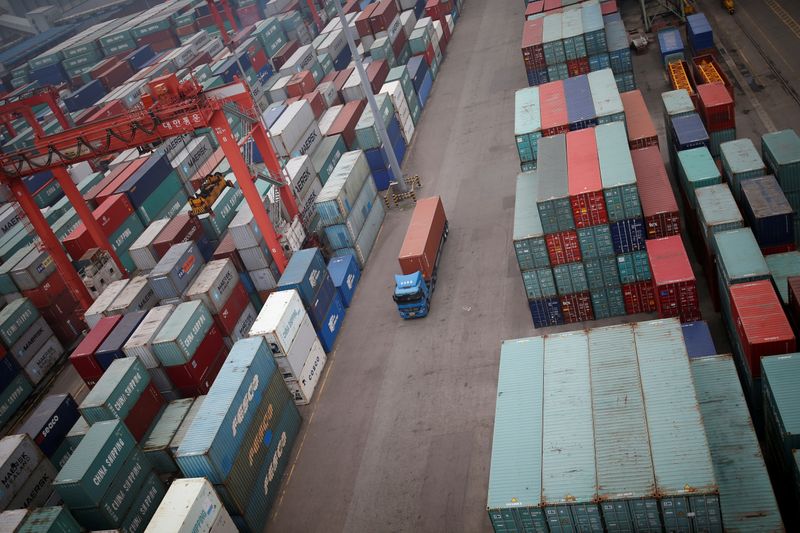SEOUL (Reuters) – South Korean exports slumped more than expected in June, extending the double-digit contraction into a third month, as the coronavirus pandemic and lockdown measures continued to dent global demand.
Outbound shipments fell 10.9% year-on-year in June, trade ministry data showed on Wednesday, much better than a 23.6% plunge in the previous month but worse than a 7.8% drop tipped in a Reuters survey.
Average exports per working day, excluding the calendar effect, fell 18.5%, compared with an 18.3% decline seen in May. There were two more working days in June from the comparable month of 2019.
South Korea’s monthly trade data, the first to be released among major exporting economies, is considered a bellwether for global trade.
Exports to China, South Korea’s biggest trading partner, jumped 9.5% from a year earlier, but those to the United States and the European Union continued to decline 8.3% and 17.0%, respectively.
“Exports could remain sluggish through the third quarter as demand from advanced nations isn’t really taking off amid second wave fears,” said Park Sang-hyun, economist at HI Investment & Securities.
“The recovery is taking place and I see it as W-shaped, as current momentum could run out once fiscal spending slows down later in the year,” Park added.
Wednesday data also showed imports tumbled 11.4%, far slower than a 21.0% drop in May but missing a forecast of 9.6% fall. That resulted in a $3.67 billion trade surplus, improved from a $0.45 billion in May.
Given the country’s high dependence on foreign trade – with exports making up 33% of 2019 nominal gross domestic product – many analysts downgraded their economic projections for South Korea this year, with the International Monetary Fund now seeing a 2.1% contraction.
(Reporting by Joori Roh; Editing by Sam Holmes)



















